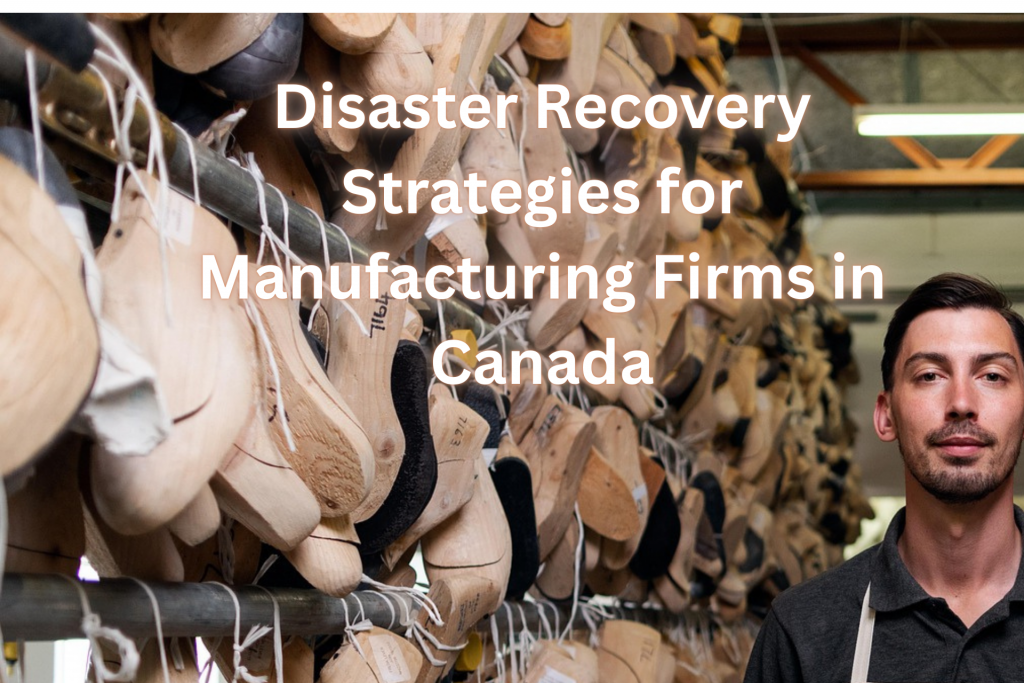Disaster Recovery Strategies for Canadian Manufacturing Firms
Canadian manufacturing companies are currently exposed to severe threats that can lead to the instant termination of production. Whether it be cyberattacks or natural disasters, downtime does not just cost the loss of time, but so much more. Production failure costs companies in revenue, reputation, and trust amongst their clients. That is why disaster recovery, manufacturing, Canada-based companies have become a necessity rather than an option. Let us examine disaster recovery within Canadian manufacturing companies. More importantly, also check out some possible approaches that can be actualized to ensure production continuity and protect technology infrastructure from server failure.

Disaster Recovery Manufacturing Canada Firms’ Strategies2
Critical Role of Disaster Recovery Manufacturing, Canada-based Firms
Production is powered by a combination of modernization, automation, and IT technologies. When any of these fails, especially server failure, the effect is instant. Even a minor production continuity outage will end up in spent resources, failed delivery dates, and jammed supply chains. Hence an industrial IT backup is needed along with incorporating disaster recovery strategies.
Through this, the manufacturers can secure vital data through industrial IT backup. Additionally, it also ensures production continuity during unexpected disruptions. Lastly, it also minimizes latency and outages to safeguard client relationships. Through this, Canadian firms are able to build resilience as a competence that becomes a competitive edge among competitors in Canada and the global market.
Risks Facing Canadian Manufacturers
There exists a large variety of threats to manufacturing and engineering in Canada. This includes server crashes that put a stop on production operations, natural calamities such as floods, storms, and extreme temperatures. Recently, the risk for cyberattacks has also increased that leads to locking or corrupting essential information. Additionally, any supply chain failures that cascade through the operations. All of these risks justify the need for disaster recovery manufacturing, Canada. The companies that do it now get up quicker and keep their losses lower.
Building a Strong Disaster Recovery Plan
A successful recovery plan is not simply a plan in form. It should be applicable, realistic, and manufacturer specific. The fundamental principles are:
Assessing Critical Systems
Identify operational systems. Rank them accordingly, and recovery begins in those areas where it counts the most–production lines, supplier relationships, databases, etc.
Investing in Industrial IT Backup
There is a safety net of automated, consistent backups. Data permanently lost is eliminated since manufacturers have the choice of through cloud or hybrid backup procedures that give them speed and security.
Designing for Production Continuity
Long pauses in production are not possible. Failover and virtualization enable companies to go back on track even in the event of primary server failure.
Testing and Updating Plans
It is only helpful to have a plan that works in practice. Periodic examinations make employees ready and show the holes. Planning should be updated to suit new technologies and equipment.

Disaster Recovery Manufacturing Canada Firms’ Strategies
Best Practices for Recovery
Manufacturers can strengthen resilience by applying these proven strategies. These will enable companies to reduce the cost of downtime and come out comfortably in case of any unexpected events. It includes:
Set recovery time objectives (RTO)
Define how quickly operations must resume.
Set recovery point objectives (RPO)
Define how much information your business can risk losing.
Train staff regularly
When issues strike, a well-trained team is able to act with confidence, not confusion.
Automate backups
Minimize mistakes by automating and scheduling regular backups.
Adopt hybrid solutions
Use both cloud and on-site systems for balance.
Reducing Downtime Costs
Any minute of downtime is expensive. Unfortunately, in that short span of time, some industries lose thousands. Therefore, minimizing the impact can be done by manufacturers through scheduling automation of backups to eliminate lapses and maintaining backup servers and equipment to make rapid switches. Conducting routine recovery exercises with employees and collaborating with more industry experts in disaster recovery are also necessary. In the competitive industry of production and manufacturing, survival is not just the objective. It also needs to be consistent and continuous. This means being able to maintain the level of production even in the case of disruptions.
Looking Forward to the Future and The Role of EB Solution
The future of manufacturing is even more challenging with the fast-paced evolution in technology. However, because of this, there is also the added complexity through connected devices, remote work, and digital supply chains. Therefore, threats are expected to increase. However, with the right preparations and partnerships, your company can still maintain the operations healthy.
Here at EB Solution, we make sure to provide answers to your manufacturing needs when it comes to IT management, cybersecurity, business continuity and disaster recovery. Moreover, we have also ensured to keep up with the trends and are now able to provide AI business solutions as well. Schedule a consultation with our experienced IT professionals to get started.
